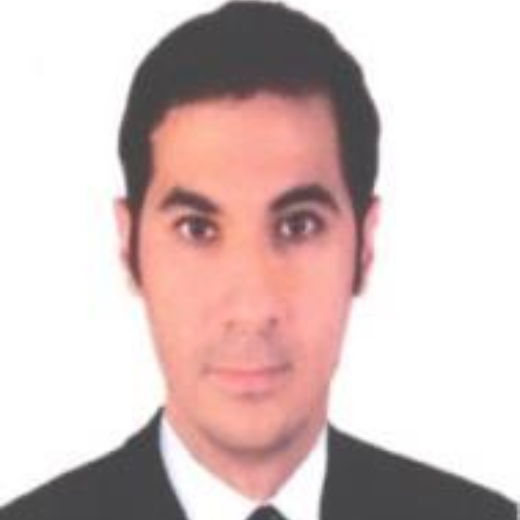International Journal of Wireless and Microwave Technologies (IJWMT)
IJWMT Vol. 4, No. 3, 1 Oct. 2014
Cover page and Table of Contents: PDF (size: 899KB)
Microwave Detection of Water Pollution in Underground Pipelines
Full Text (PDF, 899KB), PP.1-15
Views: 0 Downloads: 0
Author(s)
Index Terms
Remote sensing, water pollution, Cole-Cole model, ground penetrating radar (GPR), reflection coefficient
Abstract
An electromagnetic model is proposed to detect water pollution in underground pipelines. Contaminants present above a certain level in water can be a public health hazard. The contrast in the dielectric constant between contaminated and fresh water is one of the most important parameters to be considered for detecting the presence of pollutants in water. Simulations of frequency response and time domain pulse wave through a multi-layer medium are presented. The complex dielectric permittivity of polluted water has been measured as a function of frequency and analytically represented by Cole-Cole fit model. Water pollution can be detected by observing the variation of the reflection coefficient or reflected signals from unpolluted and polluted water. The experimental set up is described and the procedure followed to obtain an effective permittivity data is outlined. These measurements are, to the best of the author's knowledge, the first of its kind to be published. Microwave technique discussed in this manuscript for water pollution study is a pioneer technique to detect various pollutants in water.
Cite This Paper
Ahmad H. Abdelgwad, Tarek M. Said, Amr M. Gody,"Microwave Detection of Water Pollution in Underground Pipelines", IJWMT, vol.4, no.3, pp.1-15, 2014. DOI: 10.5815/ijwmt.2014.03.01
Reference
[1]S. M. Haslam, River Pollution – An Ecological Perspective, Belhaven Press, CBS Pub., Delhi, India, 1991.
[2]P. Niquette, P. Servais and R. Savoir, "Impacts of pipe materials on densities of fixed bacterial biomass in a drinking water distribution system," Wat. Res, vol. 34, No. 6, pp. 1952–1956, 2000.
[3]S. Eyuboglu, H. H. Mahdi and H. J. Al-Shukri, "Detection of water leaks using ground penetrating radar," The 3rd International Conference on Applied Geophysics, 2003, Orlando, America.
[4]N. Al-Dasoqi, A. Mason, R. Alkhaddar, A. Al-Shamma'a, "Use of sensors in wastewater quality monitoring - a review of available technologies, in: I. R. Edward Beighley, W.K. Mark (Eds.) World Environmental and Water Resources Congress 2011: Bearing Knowledge for Sustainability, ASCE, pp. 354, 2011
[5]F. Soldovieri , L. Crocco , A. Brancaccio , R. Solimene , R. Persico, "Application of ground penetrating radar and microwave tomography in water monitoring and management," International Water Technology Journal, IWTJ. vol. I, Issue 1, 2011.
[6]S. Lambot, E. C. Slob, D. Chavarro, M. Lubczynski, and H. Vereecken, "Measuring soil surface water content in irrigated areas of southern Tunisia using full-wave inversion of proximal GPR data," Near Surface Geophysics, vol. 16, pp. 403-410, 2008.
[7]S. Jaruwatanadilok, Y. Kuga and A. Ishimaru, "An electromagnetic model for plastic composite materials under obscuring layers," IEEE Antennas and Propagation Society, International Symposium, 2006, pp. 4841–4844, USA.
[8]F. Soldovieri, L. Crocco, A. Brancaccio, R. Solimene and R. Persico, "Applications of ground penetrating radar and microwave tomography in water monitoring and managements," International Water Technology J., vol. I, No. 1, pp. 73-82, 2011.
[9]P. A. Torrione, K. D. Morton, R. Sakaguchi and L. M. Collins, "Histograms of Oriented Gradients for Landmine Detection in Ground-Penetrating Radar Data," IEEE Trans. Geosci. Remote Sens., vol. 52, no. 3, pp. 1539–1550, 2014.
[10]F. Soldovieri, O. Lopera, and S. Lambot, "Combination of advanced inversion techniques for an accurate target localization via GPR for demining applications," IEEE Trans. Geosci. Remote Sens., vol. 49, no. 1, pp. 451–461, 2011.
[11]A. B. Yoldemir and M. Sezgin, "A least squares approach to buried object detection using ground penetrating radar," IEEE Sens. J., vol. 11, no. 6, pp. 1337–1341, 2011.
[12]Ishimaru, Electromagnetic Wave Propagation, Radiation, and Scattering, Prentice Hall, New York, 1991.
[13]K. S. Cole and R. H. Cole, "Dispersion and absorption in dielectrics I. Alternating current characteristics," Journal of Chemical Physics, vol. 9, pp.341–351, 1941.
[14]U. Kaatze, "The complex permittivity of water as a function of frequency and temperature," J. Chem. Eng. Data, vol. 34, pp. 371–374, 1989.
[15]U. Raveendranath and K.T. Mathew, "Microwave technique for water pollution study," J. of Microwave Power and Electromagnetic Energy, vol. 30, No. 3, pp. 187–195, 1995.
[16]A. H. Trang, "A reference of electromagnetic parameters & propagation of waves," Notes, pp. 40–49, 1993.
[17]H. Trang, "Simulation of mine detection over dry soil, snow, ice and water," SPIE, vol. 2765, pp. 430-440, 1996.
[18]W. S. Bigelow and E. G. Farr, "Impulse propagation measurements of the dielectric properties of several polymer resins," Farr Research, Inc., Measurement Note 55, 1999.


